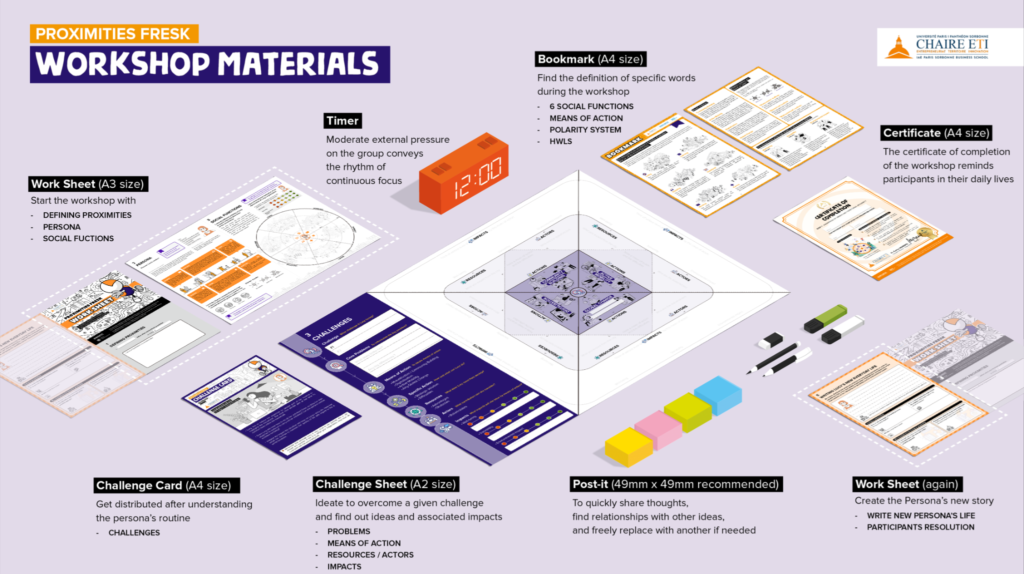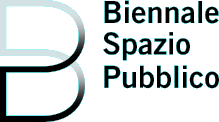Link streaming Microsoft Teams
26th May 2023
Organiser: Chair ETI, Sorbonne Buisiness School
Venue: Public Space Biennale 2023
Date: Friday 26th May
Duration: approximately 2 hours
Moderator: Catherine Gall
Outline of the workshop:
We will facilitate an interactive and co-creative session on urban proximities (called “fresks”), either dedicated to exploring issues related to the city of Rome, or without any specific territorial context
Potential audience:
City of Rome officials and urban professionals (in Italian) and international attendees of the Biennale (in English)
Objectives:
This innovative workshop format was created by Chaire ETI researchers (from IAE Paris Sorbonne Business School). It is inspired by the other “Fresks” designed by passionate scientists (from the Shift Project and other research laboratories) to disseminate complex findings about the environmental crisis to empower citizen and communities to take action (Fresk of – Climate, – Biodiversity, – Mobility, – City etc ..)..
It is a collaborative engagement tool to help participants self-reflect on their daily routines and the spatial and temporal dimensions of their lifestyles at a city, territory, or neighbourhood scale. Participants are invited either to use fictitious personae or to share and map their personal weekly activities on a canvas structured around the six social functions (organized by distance to their home, transportation mode and frequency.)
Technical requirements:
In order to carry out the workshop, we need a projector, a screen, 49×49 mm post-its and pens and the printed material outlined below (although we can print it ourselves as well).
Room setup:
Ideally participants will be divided into groups of 4 people working on individual documents and a shared “problem solving canvas (in A3). So tables and chairs are best but lower (lounge type) or higher (like stools) sitting options would be fine (standing for 2 hours would be uncomfortable).
Number of participants:
There is no set number of participants, the workshop dynamic is self paced by the structured but intuitive process – let’s say a facilitator for 25 people is good for ad-hoc support and final workshop findings sharing (note and pictures taking, recording). Small groups encourage engagement and learning
Ressources:
The printed material will consist of five documents: a worksheet, a bookmark with definitions, a challenge card, a problem resolution canvas and possibly a certificate of completion

Roles:
Facilitation team: introduction, workshop overview and process presentation, support and final sharing
Participants: follow the creative process alternating individual reflections and collaborative solutions
Tentative agenda:
Workshop introduction and contextualisation → 5/10 min
workshop step 1 : Proximities definition → 10 min
workshop step 2 : Persona discovery →15/20 min
workshop step 3 : Persona routine analysis (6 social functions & 3 indicators) → 20 min
workshop step 4 : Challenge resolution →20 min
workshop step 5 : New persona narrative (routine)→20 min
workshop step 6 : Group sharing in plenary session →20 min
*Participation pending confirmation
**Event with simultaneous interpretation
